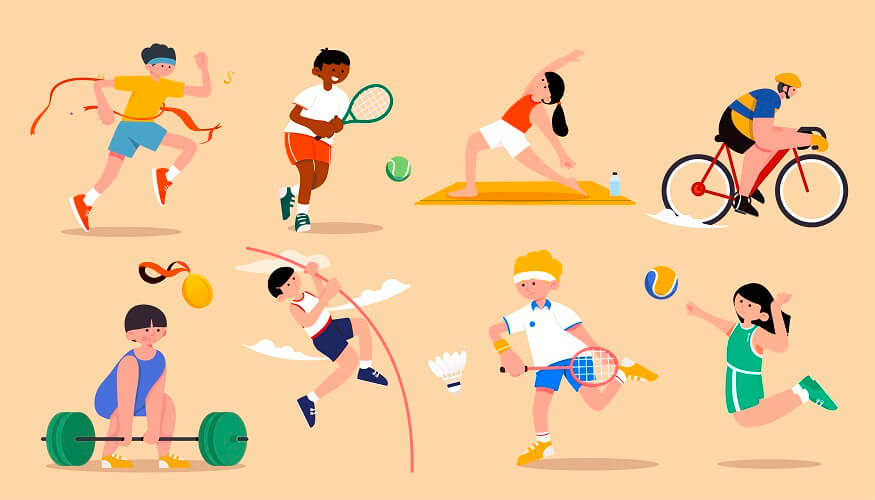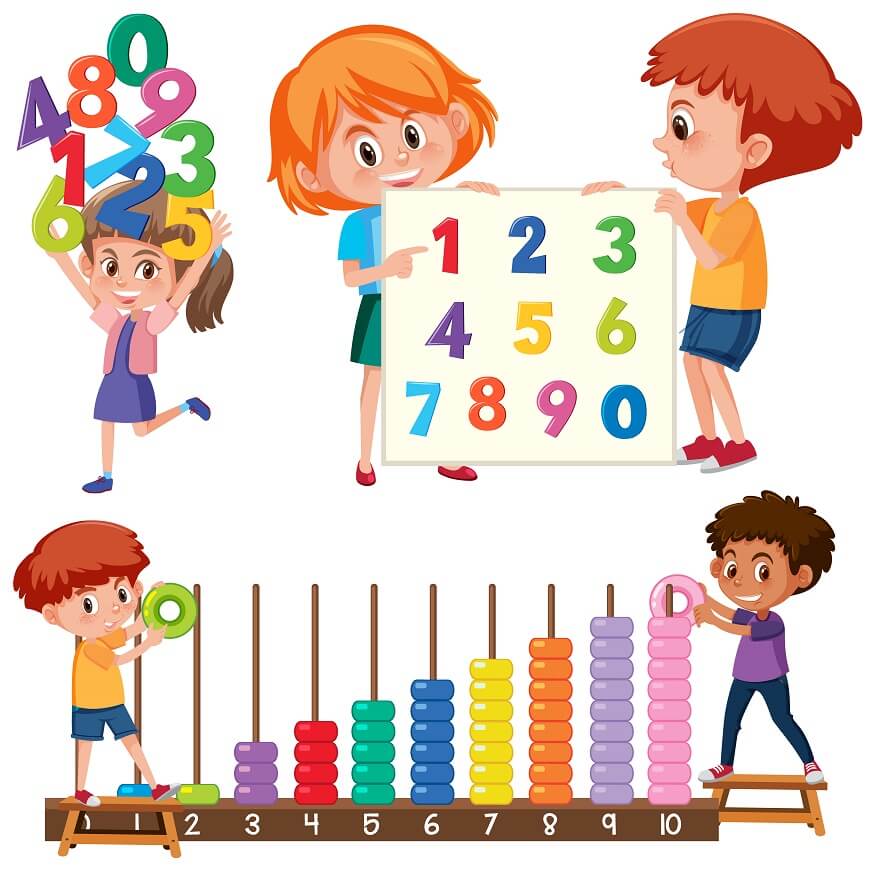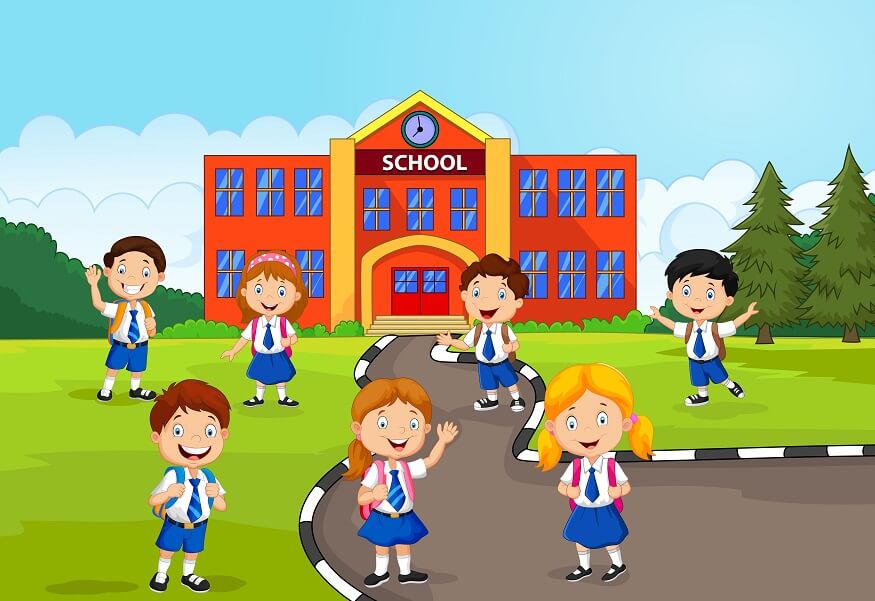Most schools have a “sports period” somewhere in between the hectic class schedule. Sports have been traditionally believed to help in breaking the monotony of classroom teaching and academics. Sports also help in releasing pent-up energy in students while sitting in class for long hours. However, the benefits of sports are not just limited to that. When children play sports, it builds values in them that help in developing some extremely useful skills and delivers some extremely useful benefits. Let’s look at some of the benefits of sports for students and children.
Physical Fitness
One of the first and foremost benefits of sports which comes to mind is physical fitness. Children today spend more time sitting and engaging a lot on social media and on their smartphones which does not involve much physical movement. As a result, cases of obesity and lifestyle diseases are showing early onset among children. In this context, physical fitness is an extremely useful outcome for children engaging in sports. Active engagement in fitness activities prevents children from various lifestyle complications such as obesity, high blood sugar and blood pressure levels. Indulging in various fitness activities improves their appetite, and sleep quality, and keeps the children energetic and in good spirits.
Motor skills
Playing sports requires swift coordination between mind and body. Most games including cricket, football, and tennis require heavy physical activity in addition to seamless coordination between hands, legs, eyes and our other senses. Sports can be fast-paced and children will need to quickly respond to situations. This helps in developing the motor skills of children. Right from holding a bat to seeing a ball coming to them at speed, judging its height, and distance and catching it involves complex motor movements and coordination. Engaging in such sports from a young age helps in the healthy development of motor skills for children.
Cognitive skills
Sports are not all physical. They involve a significant amount of thinking, planning, strategizing and problem-solving. While sports such as chess are largely mind-based, even other non-board games such as football, cricket, basketball, and tennis, require teams to strategize against their opponents, identify their strengths and weaknesses, devise a strategy to exploit the opposition’s weaknesses and deliver the winning punch. When children play sports, it sharpens their cognitive skills. They learn to come up with creative solutions to problems their team is facing on the playground. One of the benefits of sports is, the kind of cognitive development a playground develops can at times outdo the development in the classroom, both in terms of magnitude and pace.
Teamwork
Most sports are team-based sports where children need to work with each other to compete and win. For example, sports such as cricket or football involve eleven players on the ground along with a few extra on the bench. Each player in the team has a specific role and they must perform their role well for the overall team to succeed. It’s not just important that you perform your role well, but it’s also critical to support your teammates so that they can also deliver to the best of their ability. Only rarely do individual performances lead to victories in team sports. Children indulging in team sports learn these vital lessons right from school days.
Goal orientation
You don’t just score goals in football, but if you see, the benefits of sports are about achieving a goal. Whether it is chasing down a score your opposition has set in cricket, breaking that 100-metre sprint record in your school, or beating the best tennis player in the tennis club. Sports teach students to be goal oriented and strive towards achieving those goals. Goal orientation is one of the vital leadership skills which holds students in good stead not only in school but throughout their life journey.
Hard Work, Discipline and Dedication
Achieving goals is not easy and requires hard work, discipline and dedication. Competing in various sporting events teaches children the virtues of hard work, discipline, and dedication. Students realise that shortcuts might work occasionally, but to win consistently, there is no substitute for hard work, discipline and dedication.
Work ethics
Sports are highly driven by rules and sportsmanship. Breaking these rules, written or unwritten, leads to severe penalties in sports. It is a good lesson for students to learn and helps in building positive work ethics in them. They get adjusted to the concept of having rules and following a set of guidelines and directions, even if they may not sometimes agree with the ruling of the referee, judge or umpires. Sports teach children to respect authority and continue with their efforts even in the face of adversity. Children who actively engage in sports develop strength of character and extremely good work ethics which stay with them for their lifetime.
Self-esteem, self-confidence, and Sense of Achievement
While one may not win all the time, simply competing and giving their absolute best develops a sense of achievement, self-esteem and confidence in children. If they do achieve laurels, it further goes a long way in developing confidence and leadership in students. Haven’t we all admired and blindly followed the leadership of our team captains in school and college? This is of special value for those students who struggle with their academics. The playground then becomes their source of a confidence boost. A sense of achievement in some form or field is essential for children to develop self-esteem and self-confidence. For some, this sense of achievement may come from their tools on the playground. In many cases, this positivity from the playground also rubs off in the classroom and students start showing improved academic performances as well after achieving a significant milestone in sports.
Handling Emotions
Winning and losing are a part and parcel of sports. Active sports persons learn how to manage both of these emotions. Sports teach children to manage their emotions when they are down, pick themselves up and then give their best again when the next opportunity arises. In the long run, children who are active in sports learn to better handle their emotions in most situations in life – whether they face sadness, joy, anger, ecstasy, or disappointment.
EuroSchool believes in the power of sports in delivering holistic development of children. The world-class sports infrastructure at EuroSchool motivates students to engage in various kinds of sports and benefit in the ways listed above.









